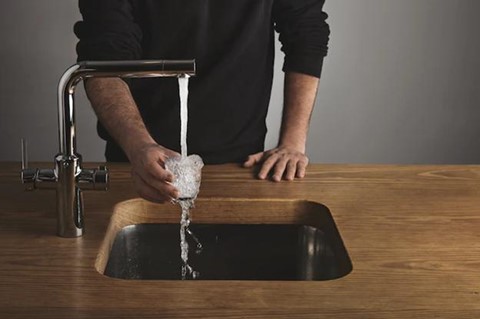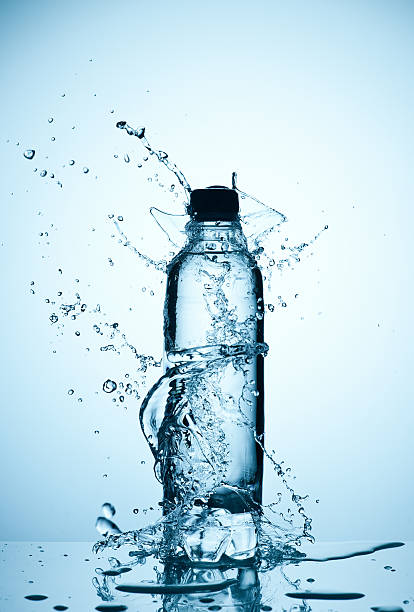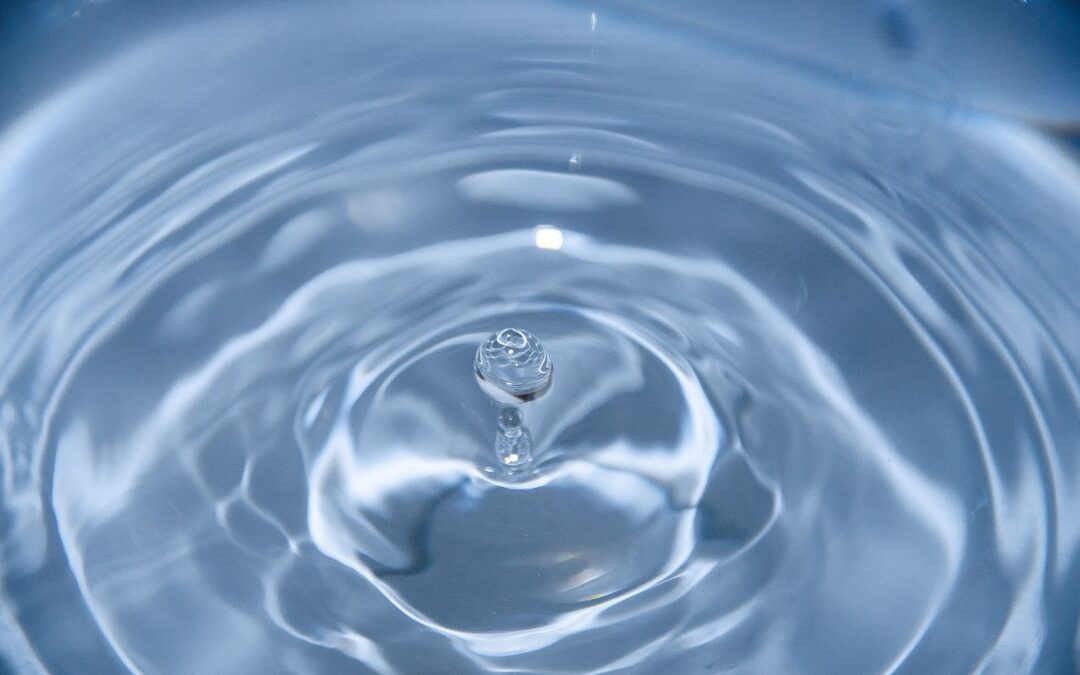Did you know that most CPAP manufacturers recommend using distilled water with your CPAP machine? As you may be aware, CPAP devices supply the user with constant air pressure. It ensures that people with sleep apnea are breathing correctly throughout the night.
Machines can become the ideal setting for bacterial development with regular usage. Distilled water is by far the most secure option. Some individuals believe that boiling water before using a CPAP machine is enough. Yet, this does not eliminate minerals.
It’s always a matter of good health. One of my suggestions is Resway distilled CPAP water. They’re known for being the ideal way to maintain CPAP equipment and its built-in humidifiers.
In this blog post, I’ll share information on why I recommend distilled water for CPAP machines. I’ll also explain why other forms of water aren’t suitable for CPAP machines. So, are you ready?
Table of contents
- Why Do I Recommend Distilled CPAP Water?
- Why You Shouldn’t Use Tap Water
- The Reason Why I Don’t Use Bottled Water and Alkaline Water
- Can Reverse Osmosis Water Be Used in a CPAP Machine?
- Why Should You Never Use Well Water?
- Why Don’t I Use Spring Water for My CPAP Machine?
- The Benefits of Distilled Water
Why Do I Recommend Distilled CPAP Water?

Distilled water is devoid of germs, viruses, and minerals. It is the natural choice for CPAP usage and maintenance. Nobody wants their machine to stop working because of crusty build-up or foul odors. Build-up comes from calcium and magnesium in tap water, and smells are generally from bacteria growth.
Distilled water is the best choice for the following reasons:
- Reduce or eliminate bacteria growth and mineral scale build-up
- Creates optimal air pressure
- No microbes, minerals, or other chemical contaminants
- 99.9% purified (not purified water)
- 0<1 ppm total dissolved solids
If you use mineral-containing water, your CPAP machine will not work correctly. They’re abrasive and can damage the machine’s water chamber and the plastic material mechanisms. This isn’t an excellent way to protect your investment if you’ve spent hundreds (or more) of dollars on a CPAP machine.
One of the highest-rated distilled waters out there for use with your CPAP machine is Resway`s Distilled CPAP water.
Must Read: CPAP Distilled Water: Breakdown of Cost When Buying Online
Why You Shouldn’t Use Tap Water

It is easy to find people online who say that using tap water in your CPAP machine is safe. However, this is not the best choice. While tap water is undoubtedly the cheapest and easiest way to refill your CPAP water chamber, it often contains many unwanted contaminants and harmful substances that can diminish the life of the water tub.
These can create issues with your machine’s tubing, water reservoir, and other components.
What if I boil the tap water?
While boiling water kills germs and other hazardous bacteria, it does not remove chemical pollutants found in tap water. This means that no matter how hard you boil the tap water, you won’t be able to eliminate mineral deposits like calcium, magnesium, iron, and so on, and your CPAP supplies may suffer as a result.
These mineral impurities can accumulate in the humidifier’s water chamber over time and harm it and other elements of the CPAP machine. You can remove some of these minerals by filtering the water before using it.
Still, you can’t eliminate harsh chemicals like chlorine, etc. Using tap water, on the other hand, is not beneficial for the overall life of the humidifier water chamber.
The Reason Why I Don’t Use Bottled Water and Alkaline Water
If your bottled water is labeled as spring water or mineral water, there’s a good chance it contains trace amounts of minerals and salts. You should avoid using bottled water with your CPAP humidifier.
If you don’t have access to distilled water, specific products like Aquafina cleanse the water to eliminate pollutants. Consumer reports compiled a collection of water quality reports for over 120 brands to help you figure out precisely what’s in your bottled water.
Alkaline water is the opposite of distilled water and unsuitable for CPAP machines. The filtered water of alkaline raises the pH level, making it less acidic. Other chemicals, such as silica and bicarbonate, may also be present.
One good example of an alkaline-water product is the Smart Water brand, which contains electrolytes like calcium, potassium, and magnesium. It is excellent for drinking but not for CPAP treatment.
Can Reverse Osmosis Water Be Used in a CPAP Machine?
Reverse osmosis is a water purification procedure that involves forcing water through a semipermeable membrane to remove sediment, bacteria, and pollutants.
While it is often more thorough than traditional filtering methods, reverse osmosis water still contains some dissolved particles, making it less suited for CPAP humidifiers than distilled water.
Furthermore, some at-home reverse osmosis systems are more successful than others in removing pollutants, and their performance might deteriorate with time. Bottled water manufacturers that use reverse osmosis frequently remineralize the water after filtration.
Why Should You Never Use Well Water?
Using well water in your CPAP machine and heated humidifiers is strongly discouraged. Reports of lung disease have been linked to using contaminated water in a CPAP, and there is also a small danger of eating dangerous parasites.
Why Don’t I Use Spring Water for My CPAP Machine?
The spring water is derived from natural underground water sources extending to the surface of the earth. This water may naturally have a high mineral concentration or contain other organic substances.
Although spring water is lovely to drink, running it through your humidifier might cause the machine’s components to break down. In your CPAP humidifier, use distilled water rather than spring water.
The Benefits of Distilled Water

Distilled water ensures that your CPAP functions correctly and that you get the most out of your CPAP therapy. It will moisturize and ease your airway pressure while preventing germs from entering your sinuses and lungs.
In an emergency, bottled water is safer than tap water, although it isn’t as safe as distilled water. To discover water that is safe to drink, carefully examine the labels at grocery stores. Also, if you can’t find distilled water, it should be fine to go without using your humidifier until you return home.
Your lungs are exposed to the air in your humidifier. This is why drinking water that has been distilled is essential to your health. Softeners for water, soaps, essential oils, and other products can expose you to toxic chemical fumes like chlorine, bleach, and alcohol.
Related Article: The Benefits And Uses Of CPAP Distilled Water
Conclusion
using distilled water in your CPAP machine is crucial for ensuring the optimal performance, longevity, and hygiene of the device. Alternatives such as tap water, bottled water, alkaline water, reverse osmosis water, well water, and spring water may introduce impurities, minerals, or chemicals that can lead to unfavorable outcomes, including bacterial growth, device damage, and compromised therapy.
By consistently using distilled water, you can enjoy the full benefits of your CPAP therapy, safeguarding your health and promoting a restful night’s sleep.
To learn more and purchase high-quality distilled water for your CPAP machine, we invite you to visit CPAPwater.com. Our mission is to provide you with the best solution for your sleep apnea treatment, ensuring a safe and effective therapy experience.
Have you started using distilled water for your CPAP machine yet? What is holding you back?



